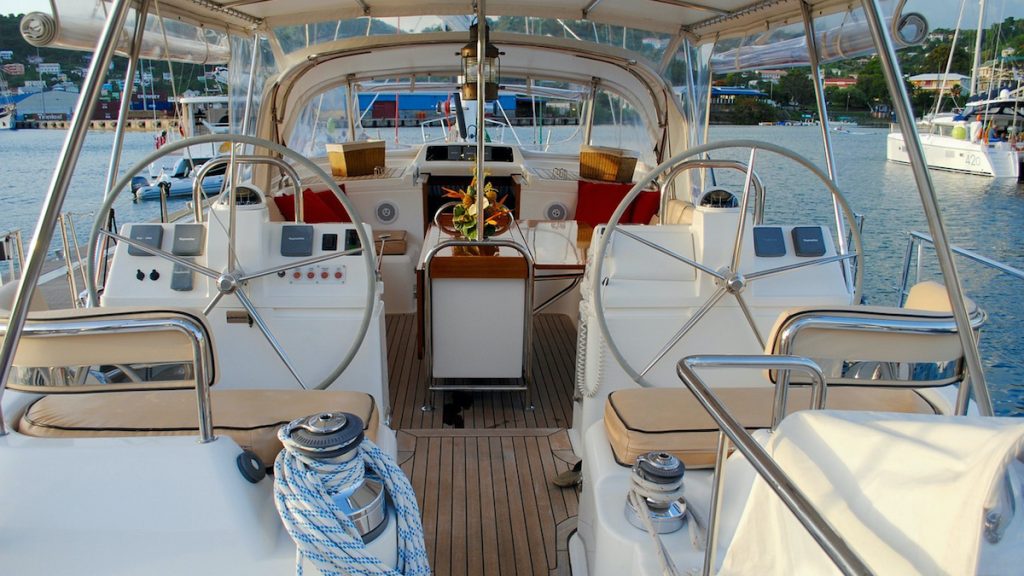It’s a dream shared by every boating enthusiast. Some have the idea of living on a boat as a fixed goal, while others have only occasionally entertained the thought. Some people consider moving to a boat moored in a marina to start a completely different life, filled with relaxation, travel, and frequent sea outings; others think of living on a boat moored in a marina much like living in any house in a seaside city, with the advantage of always being ready to cast off and sail away. It’s worth noting that nowadays, it’s possible not only to live but also to work from your pleasure boat: for example, those who choose to live on a boat moored in a marina with good wi-fi connection could work remotely, transforming their vessel into both a home and an office. But is it legally possible to live on a boat moored in a marina in Italy? And furthermore, is it feasible to live abroad on a boat? And how much might this lifestyle choice cost?

Living on a Boat Moored in a Marina: What the Law Says
First, let’s look at the legal aspect of choosing to live on a boat moored in a marina. First and foremost: does the law allow this type of arrangement? Many are quick to claim that no, it’s not possible. In reality, however, there actually isn’t any rule that prohibits living on a boat, which by nature will be in water, moored in a space specifically designed to accommodate such a vessel, namely a boat slip in a marina or similar facility. In fact, Article 16 of our Constitution states that “Every citizen has the right to freely move and reside in any part of the national territory, except for limitations that the law establishes generally for reasons of health or security”: this means that, in the absence of prohibitions – which don’t exist at a general level – the Constitution itself allows for the possibility of living on a boat moored in a port. Therefore, with the marina manager’s approval – who could obviously refuse to grant a boat slip for an extended or even indefinite period for various reasons – and being able to demonstrate stability of residence, it is absolutely legal to request a certificate of residence from the relevant Municipality. However, it should be noted that often the Municipality itself can complicate matters, potentially struggling to grant residence simply because the request might be viewed as “eccentric.” It’s also worth noting that there’s the possibility of declaring oneself as having “no fixed address,” though this condition assumes the total absence of alternative accommodations. In short, from a legal standpoint, apart from potential objections from municipal officials, it is certainly possible to live on a boat moored in an Italian marina. But wait: what if one decided to live on a boat not in Italy, but abroad?

Living on a Boat Abroad
Obviously, when deciding to live on a boat abroad rather than in Italy, the relevant regulations are those of the country where you want to relocate with your vessel. One thing is certain: those who can afford to move abroad without problems and live on a boat without worrying about work are, in the vast majority of cases, happily retired. It’s worth remembering that several European countries offer significant tax benefits for Italian retirees, thanks to agreements made by our country regarding double
taxation. There are countries where benefits are reserved only for those with private pensions, but it should be noted that in some cases a public pension is sufficient: this is the case, for example, with Tunisia, which can certainly be seriously considered by those wanting to move abroad and live on a boat in the Mediterranean (knowing that maintaining residence abroad doesn’t necessarily mean living continuously in that country: you just need to be able to prove residence in that country for at least half of the reference year). Another country where many dream of relocating by boat is Greece, and it’s no coincidence that among the favorite retirement spots for Italian boaters are Kefalonia, Corfu, Crete, Santorini, Mykonos, and so on.
The Costs of Living on a Boat

Whether in Italy or abroad, it’s important to remember that living on a boat has inevitable costs. However, it can be said that it’s often easier to calculate the cost of living on a boat in a marina compared to the cost of living in a normal apartment. What are the cost items to consider? In brief, these include:
Boat slip mooring price: the rental rate in a marina varies from place to place, based on location, available services, and so on. Generally, opting for six-monthly or annual rates should allow for significant savings compared to monthly or weekly rates. Note: not all marinas are available to lease a boat slip for 12 months!
Utilities: from electricity to fresh water, the marina chosen for boat living should provide everything necessary for comfortable living. Obviously, these utilities have a cost that shouldn’t be overlooked, just as in regular brick-and-mortar homes. Why not help yourself with boat solar panels?
Boat maintenance: the cost of boat maintenance, it should be noted, would be similar even for a simple uninhabited boat moored in port; wear and tear should be only slightly higher, knowing however that those who live on board should notice any problems immediately, preventing serious damage!
Marine insurance: those living on a boat might obviously have all the good reasons to expand and secure the insurance coverage of their floating home.


